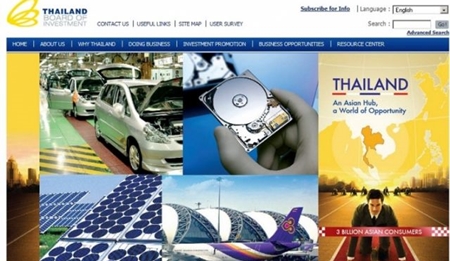BANGKOK, July 24 – Investment promotional privileges for foreign investors in Thailand should surge to Bt1 trillion this year as targetted, Industry Minister Prasert Boonchaisuk said today.
He said 1,055 projects seeking promotional privileges from the Board of Investment (BoI) in the first half of the year were valued at a total of Bt632.8 billion – an increase of 5.8 per cent for projects and 47 per cent for investment value.

Service and public utility services topped the number of applications at 256 projects, followed by the metal products, machinery and automobile/parts sectors, and the agriculture and agricultural products sectors.
Applications for foreign direct investment totalled 619 projects with Japanese investors representing the highest group, followed by investors from Malaysia and Hong Kong.
Applications for investment privileges should not be less than Bt1 trillion this year, he said.
Udom Wongviwatchai, BoI secretary general, said several positive factors contributed to foreign investors’ interest in Thailand including the depreciating baht and emerging economic situation in the Mekong sub-region countries: Cambodia, Laos, Myanmar and Vietnam (CLMV).
The CLMV group is Thailand’s significant market, he said, adding that the tourism business and auto industry have enjoyed growing trends.
He said the global economic slowdown especially in China, domestic labour shortage and higher wage, higher interest rates in overseas market and diminishing purchasing power will, however, negatively impact investments among some industrial sectors.
Several major industries will invest successively in the second half of the year, including food and beverage manufacturing and the auto and parts sector which will expand to eco-car production, the service and public utility sector which will seek promotional privileges for electricity generation, and the aviation sector which will invest in new aircraft, he said.
Mr Udom said investment in labour intensive industries such as textile and shoe manufacturing will decline due to a labour shortage, higher minimum wages and withdrawal of the Generalised System of Preferences tax exemption by the European Union.
Also on a declining trend is the electronics sector in light of shrinking sales of computers in the global market while investment in electrical appliances will continue to grow.
Mr Udom said the petrochemical industry, while it has been stagnant, should spring backin the next few years.




